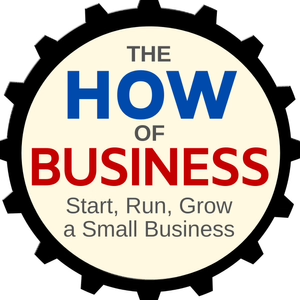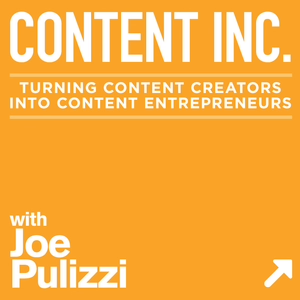
Future Foods: Alternative Sources of Protein with Ynsect, Meatable, and Plantik Biosciences
12/24/20 • 54 min
Today, agriculture is among the greatest contributors to global warming, emitting more greenhouse gases than the transportation industry, with methane released from cattle rearing largely responsible. Yet, by 2050, food production needs to increase by 70% to respond to population growth. This discrepancy means that we are in dire need of a new food system that will not overwhelm the planet despite our growing demand for food.
In this episode, we tackle the future of food with Antoine Hubert (co-founder & CEO of Ÿnsect), Ying Shao (co-founder & CEO of Plantik Biosciences), and Daan Luining (co-founder & CTO of Meatable). We discover the new breeding technologies for plants and meats that Ying and Daan are respectively developing. We learn about insects as an alternative source of protein with Antoine and dive into the most interesting innovations in food today.
Topics:
[00:22] — Introduction with Roxanne Varza
[01:22] — Ying on what cannabis has to do with the future of food
[02:53] — Ying on what Plantik does with cannabis
[03:54] — Daan on Meatable’s lab-grown meat
[05:02] — How does Meatable’s technology work
[05:56] — How does Meatable compare to other alternative meats on the market
[07:25] — Ying on the importance of producing crops differently today to respond to food scarcity
[08:45] — Daan on the environmental footprint of traditional cattle production
[10:47] — Company stage and product timeline for Meatable
[12:35] — Company stage for Plantik Biosciences
[13:35] — Ying on consumer attitudes around cannabis and gene editing
[16:25] — Daan on consumer attitudes towards cultured meat
[18:48] — The perspective from animal activists
[20:47] — On regulations: working with low THC vs. high THC plants, gene editing techniques, food in general
[25:09] — Meatable starting the first European trade association for cellular agriculture
[25:52] — Other innovations in the food space and other opportunities left to be addressed
[30:23] — Introduction of Antoine
[30:42] — Antoine on why Ÿnsect grows insects for animal feed rather than human consumption
[32:05] — Why what animals eat matters
[33:33] — Doing more with less: on vertical farming
[34:04] — Antoine’s background: from agricultural engineering to starting his own NGO to raise awareness around food waste before starting Ÿnsect
[35:35] — How the idea of Ÿnsect came about
[36:50] — On the research that goes into Ÿnsect
[39:44] — Going through food regulations
[41:05] — Ÿnsect’ product vs. traditional fishmeal
[41:53] — The commercial side of Ÿnsect
[42:48] — Production, company, and market evolutions since the beginning
[44:25] — On Ÿnsect's $372M Series C with Astanor Ventures, Upfront Ventures, Robert Downey Jr.’s FootPrint Coalition, and many more from around the world
[47:07] — Algae, biotech, and other technological developments in the food space
[47:42] — On the importance of fighting food waste and changing consumer behaviour
[51:41] — In 2050, how will we be eating?
STATION F: The Podcast is hosted by Roxanne Varza, and produced by Cindy Yang. Art is by Gaëtan Lefebvre.
Hosted on Acast. See acast.com/privacy for more information.
Today, agriculture is among the greatest contributors to global warming, emitting more greenhouse gases than the transportation industry, with methane released from cattle rearing largely responsible. Yet, by 2050, food production needs to increase by 70% to respond to population growth. This discrepancy means that we are in dire need of a new food system that will not overwhelm the planet despite our growing demand for food.
In this episode, we tackle the future of food with Antoine Hubert (co-founder & CEO of Ÿnsect), Ying Shao (co-founder & CEO of Plantik Biosciences), and Daan Luining (co-founder & CTO of Meatable). We discover the new breeding technologies for plants and meats that Ying and Daan are respectively developing. We learn about insects as an alternative source of protein with Antoine and dive into the most interesting innovations in food today.
Topics:
[00:22] — Introduction with Roxanne Varza
[01:22] — Ying on what cannabis has to do with the future of food
[02:53] — Ying on what Plantik does with cannabis
[03:54] — Daan on Meatable’s lab-grown meat
[05:02] — How does Meatable’s technology work
[05:56] — How does Meatable compare to other alternative meats on the market
[07:25] — Ying on the importance of producing crops differently today to respond to food scarcity
[08:45] — Daan on the environmental footprint of traditional cattle production
[10:47] — Company stage and product timeline for Meatable
[12:35] — Company stage for Plantik Biosciences
[13:35] — Ying on consumer attitudes around cannabis and gene editing
[16:25] — Daan on consumer attitudes towards cultured meat
[18:48] — The perspective from animal activists
[20:47] — On regulations: working with low THC vs. high THC plants, gene editing techniques, food in general
[25:09] — Meatable starting the first European trade association for cellular agriculture
[25:52] — Other innovations in the food space and other opportunities left to be addressed
[30:23] — Introduction of Antoine
[30:42] — Antoine on why Ÿnsect grows insects for animal feed rather than human consumption
[32:05] — Why what animals eat matters
[33:33] — Doing more with less: on vertical farming
[34:04] — Antoine’s background: from agricultural engineering to starting his own NGO to raise awareness around food waste before starting Ÿnsect
[35:35] — How the idea of Ÿnsect came about
[36:50] — On the research that goes into Ÿnsect
[39:44] — Going through food regulations
[41:05] — Ÿnsect’ product vs. traditional fishmeal
[41:53] — The commercial side of Ÿnsect
[42:48] — Production, company, and market evolutions since the beginning
[44:25] — On Ÿnsect's $372M Series C with Astanor Ventures, Upfront Ventures, Robert Downey Jr.’s FootPrint Coalition, and many more from around the world
[47:07] — Algae, biotech, and other technological developments in the food space
[47:42] — On the importance of fighting food waste and changing consumer behaviour
[51:41] — In 2050, how will we be eating?
STATION F: The Podcast is hosted by Roxanne Varza, and produced by Cindy Yang. Art is by Gaëtan Lefebvre.
Hosted on Acast. See acast.com/privacy for more information.
Previous Episode

Building Communities with Bailey Richardson, Partner at People & Company
Bailey Richardson grew the early community at Instagram, where she was one of the first employees. She interviewed hundreds of extraordinary community leaders and co-authored a book on how to build communities today (called "Get Together"). Currently a partner at People & Company, she coaches organizations on how to get their people together. Bailey has become the go-to expert for anything related to communities and, in this episode, she shares some of her best tips and lessons with us.
Topics:
00:22 — Introduction with Roxanne Varza
01:19 — Definition of a community: a group of people that keep coming together over something they care about
05:15 — Examples of communities: Cloud Appreciation Society, Men's Support Club, Star Wars Club
07:28 — Bailey’s experience as one of the first employees of Instagram
09:13 — On community at Instagram
11:56 — How Bailey started People & Company
12:46 — On why community building is good for business
13:55 — Example of Substack
19:02 — Does community apply to all types of businesses?
25:36 — Bailey’s favourite communities
30:38 — What people get wrong about communities
32:48 — The importance of consistency for a community to work
38:40 — Bailey’s tips for early-stage startups on building community (examples from Paul Graham and IndieHackers)
48:02 — On the growing pains of communities
53:28 — Examples of the positive impact that communities can have: Instagram, YouTube, GirlTrek
STATION F: The Podcast is hosted by Roxanne Varza, and produced by Cindy Yang. Art is by Gaëtan Lefebvre.
Hosted on Acast. See acast.com/privacy for more information.
Next Episode

Sequoia in Europe with Luciana Lixandru
Sequoia Capital has landed in Europe. Last September, Silicon Valley's premier venture capital firm set up shop in London with Luciana Lixandru at its head. With COVID aside, why make this move in 2020? Sequoia has previously invested in European companies like UiPath, Unity, and Klarna — why the need for a physical base? In this episode, we dive into all these questions with Luciana; learn more about how Sequoia finds, screens, and supports portfolio companies; talk about its scout program; and a lot more!
At Sequoia, Luciana focuses on enterprise and consumer technology companies across Europe. She is passionate about helping founders at all stages unlock their potential and think on a global scale. Prior to becoming Sequoia's first partner in Europe, Luciana (#12 on Forbes' Midas List Europe) worked at Accel for eight years, where she led investments in UiPath, Deliveroo, Hopin, Framer, Miro, and Tessian.
Topics:
00:23 — Introduction with Roxanne Varza & Gwen Salley
01:20 — Luciana on Sequoia’s move to London
03:28 — Why enter Europe in 2020
04:14 — Sequoia’s investment thesis and examples of European investments
04:46 — Establishing a physical presence in Europe to find talent earlier
06:12 — Sequoia’s Europe team
09:15 — Luciana on team building at Sequoia and recruitment for London
10:50 — How Sequoia invests and helps with company building
12:45 — The differences in the European ecosystem
14:56 — The impact of COVID on work habits
16:20 — Sequoia’s screening process (including one of Luciana’s tricks!)
22:00 — How Sequoia leverages its community to help its portfolio companies
26:22 — The origins of Sequoia’s scout program
28:43 — Roxanne (STATION F Director) on how she became a scout at Sequoia Capital
30:37 — How the scout program works
32:30 — Tier-1 international funds setting up shop in Europe
This episode is hosted by Roxanne Varza and Gwen Salley, and produced by Cindy Yang. Art is by Gaëtan Lefebvre.
Hosted on Acast. See acast.com/privacy for more information.
If you like this episode you’ll love
Episode Comments
Generate a badge
Get a badge for your website that links back to this episode
<a href="https://goodpods.com/podcasts/entrepreneur-talks-by-station-f-122889/future-foods-alternative-sources-of-protein-with-ynsect-meatable-and-p-10452517"> <img src="https://storage.googleapis.com/goodpods-images-bucket/badges/generic-badge-1.svg" alt="listen to future foods: alternative sources of protein with ynsect, meatable, and plantik biosciences on goodpods" style="width: 225px" /> </a>
Copy




